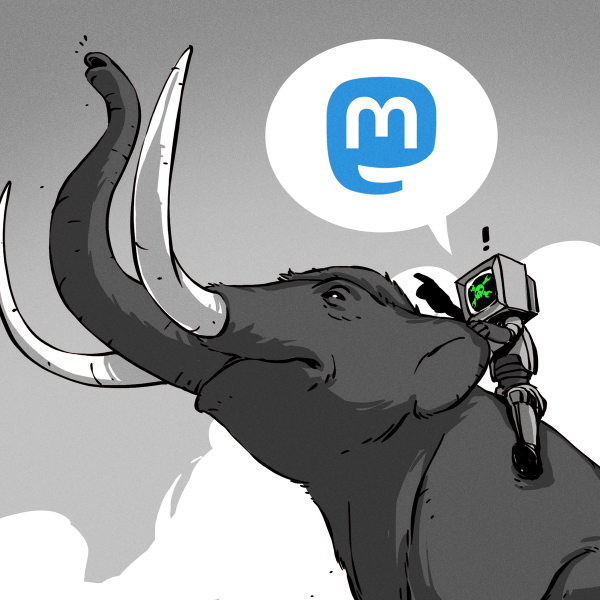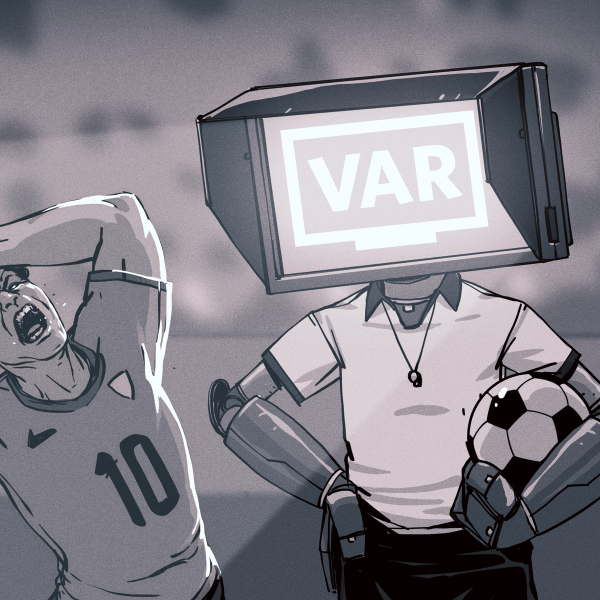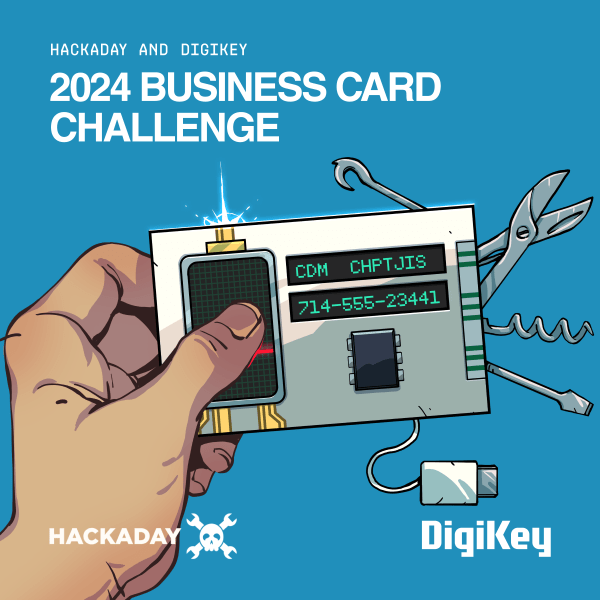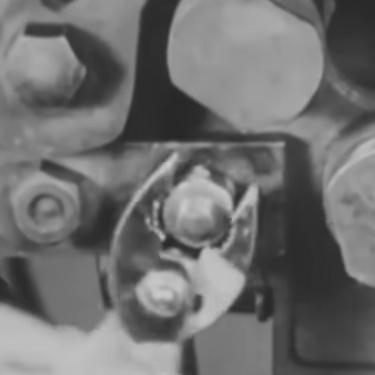For those who watched the Tour de France, you may have been pleasantly surprised to see some cool tech. Nike was using a robot to paint pictures on the street in chalk dot matrix style. It was accepted by the general public as new and innovative, as well as generally cool. In the hacker community though, a bit of trouble began to brew. The Chalkbot bears more than a passing resemblance to a project called GraffitiWriter. GraffitiWriter was a bot initially designed to protest the militarization of robotics. As it turns out, one of the early developers of the GraffitiWriter is behind the Chalkbot in a legitimate contract. The trouble doesn’t seem to be one of intellectual property legalities. People are mad at the corporatization of public work. They want kids watching to know that this system was designed by regular people in their spare time at their homes, not by a team of researches in a secret underground Nike laboratory.
The article takes a bit of a turn and talks some about the possibility of projects being taken and used for corporate advertisement. The specific item they are talking about is the Image Fulgurator which secretly projects images on objects in your photographs. You’ll have to go check that one out to see how it works.

















“in a secret underground Nike laboratory” :D
I’ve been watching the tour and figured these guys stole the idea. I’ve been trying to figure some clever message to send to show my displeasure. Something in the lines of:
Fun!
Unique!
Clever!
Krazy!
OMG!! People get over yourselves. If you release something for “free” on the internet, that means “free” for everyone. Everyone includes corporations not just people in their basements. If you don’t want your project exploited don’t release the details.
Don’t get me wrong, I’m all for open-source/open-hardware movement and I release what I can on the internet in return for exploiting other’s hard work. It just blows me away how some people get all upset when they find out it isn’t Johnny in his basement using their great idea it is some company XYZ. If they don’t want companies using their ideas, then they need to license them as such and be prepared to go to court over it.
Just by two cents.
Yep, you don’t have to open-souce everything you make. You can retain the rights, and give it away for free (as in beer). Then if a company uses it, they can pay you.
Open source is about spreading innovation as widely as possible, it can provide an alternative to products from corporations, but isn’t itself anti-corporate.
here is a link to the youtube vid of this bad boy in action.
http://www.youtube.com/watch?v=5Jb-KT4r6NY
Ww
i have to agree with jeremy
if you are going to release the details, you accept that anyone can use it.
i dont have a problem with patents, especially for people working in their basements. it is too bad that it is so expensive to defend. if your idea is great, get a patent and license and make your monies. its what makes this country great.
agree with jeremy.
Another agreement with Jeremy. The guy who did the original is onboard with the project, so what’s the problem? That he “sold out” or something? Since when are you supposed to spend all your time developing cool stuff and not get paid for it?
anon: do you know anyone at all who has actually licensed a patent and made money?
A patent grants NO protection. Read that again because it’s true.
By definition a patent is just the right to sue someone and try to prove that he is using your project. Fact is people will rather fight patents than license them
Nice bit of kit. Nice to see one of the key guys got picked up by a major corp to do some work. I see no problems with it at all. As Jeremy says, if its all released free on the internet – all rights (bar credit) to complain are handed over too.
Good on Nike for spotting talent and employing it – how many people who create things like this are left un-supported and who could work wonders if given the resources, in all sorts of arenas?
I don’t know if it’s old, newish, or whatever (I hadn’t seen it before) but in Oceanside, CA, on the 4th there was a plane skywriting in dot-matrix for geico. The resolution was low – I think 5 dots – but it was pretty effective. I wonder if that project was inspired by this, or vice-versa.
@hackius: Are you serious?! I know lots of people/ companies who have made money with patents. IP licensing is alive and well in the reality I live in.
Blatant duplication of technology in a patent makes the trod upon party eligible for treble (3x) damages. A company could lose three times the profit from knowingly infringing a patent. True that the patent holder has to enforce (as is the case in the vast majority of Business & Civil Law in the US).
this is neat! is someone butthurt because a company took their precious idea and actually ran with it?
once it’s on the internet, you’d better be prepared for this sort of thing.
@toolboy: links with actual cases. Other than big business nobody make money from patents.
Eligible for damages means little when the company is incorporated. They usually just declare bankruptcy and just start a new company.
@hackius,
I think possibly your argument should be based on people making money on fighting a patent infringement. Many many people make money on patents. your profit margin is pretty high if a company wishes to use your patent actually.
I’ll bet very few people make money fighting a patent infringement. I have no data to back that up though.
on a side note, there is a big issue in the patent system amongst engineers. Often the company you work for owns majority rights to your patents. You watch them make money off of them, you only get your name on it. While this may seem fair for work related patents, a lot of them can take ANY idea that was created during your employment… that’s insane.
Another agreement with jeremy.
On a side note, I wouldn’t even be too sure the original guys even ‘sold out’. even if distasteful to the artistic sensibility, one occasional project for a big dumb corp with deep pockets will pay way more than enough to be able to go back to the lab and work on new stuff uninterrupted for another year or two, even expand the lab and its influence, instead of closing it down.
what they did to help nike is infinitely small in the overall scope of nike. What they likely got back could have saved or expanded their whole organization and its influence.
We in the open source committee put an awful lot of effort into trying to get corporations to recognize, use, and support open source software. It’s interesting to have such an opposing view on hardware, especially given that (a) it was just an implementation, it’s not like they were selling the machines and (b) a great many ‘hacks’ are DIY versions of commercial equipment.
I think it’s great to have as many open ideas in hardware as possible. It’s a boon to consumers such as you and I as well (as the economy in general) whenever an industry cost is avoided, and enhances the overall state of technology. If you are only willing to develop things that you will have a monopoly over, then that is what patents are for. But patents are certainly not in the spirit of things.
caleb – same occurs with the majority of Universities/Colleges – any student, undergraduate, postgraduate, or even staff have to accept the IP goes to the Uni who will share part of the profits. I dont know about other places, but the Uni I’ve worked in that did this offered 50% of profits and would actually create and run the spin-off company/patents etc required to make the cash. Seems fair to me. My current workplace lets you keep your IP but will help you commercialise the work for a percentage of the cash. They have warned us in several seminars that it is often pointless patenting anything as the cost of challenging it is prohibitive, and thats coming from world-renowned institutions.
@marshallh – no, it looks to me like some people getting upset on behalf of someone who made cash off it.
This discussion exemplifies the problems with corporatization of ideas and the societal conditioning that trains people to sell them.
Creators are often motivated by profit and not the joy of creation. Commodifying ideas cheapens and objectifies the creative process. Part of the inherent joy of hacking is that an idea or product is made to fulfill a purpose or demonstrate a process that is useful and interesting, not just marketable and profitable.
Does a creator have a right to sell an idea? Of course.
Personally, I think it’s unfortunate that someone creative sold out to a corporation, and it’s especially ironic that someone protesting the militarization of robots is okay with using them to promote a company that has a history of using sweatshops and still contracts with factories that utilize questionable labor practices.
if you complain about companies using your stuff then you have no right to use company’s stuff. If you take parts out of a toaster, to put into your roomba, you are violating the intention of each of those companys’ products just like they are violating yours. Unless you buy all your components new, stfu
@Caleb: You’re right you put that better than I did.
@ Misha: Wow you are dumb. That is not even the same thing. One, you paid for the toaster. Two, you are not taking their toaster, copying it, then selling it as a new toaster.
why don’t you just take it to the logical conclusion, and the one that most artists afraid of ‘selling out’ choose to follow; Simply do nothing, and create nothing but whiney noises.
If you create something to make the world better, a corporation might use it, so just don’t do it.
If you do anything to make enough money to keep the lights on and you creating, you are selling out.
The only way to be true is to do nothing at all. Besides, its not laziness – its >the man< keeping you down, right?
Good for him for getting paid to hack!
So what. It writes stuff on the ground. It doesn’t feed starving masses or do anything amazingly useful to anyone other than, say a shoeanjufacturer seeking new advertising spaces.
So let me get this straight. It’s ok for open source projects to copy and emulate ideas of corporations, but not the other way around?
call the waaaaaaaaaaaambulance!
either its open or its not. you can’t give your ideas away freely and then start whining when someone uses one.
maybe this will give these ‘anti-corporate’ muppets the hint that IP protections arn’t just about making money
@hackius: Not saying that the patent system is a good one – it does more to protect the big guys than the little guys but it’s a bit strong to say everybody ignores these laws. Here is the most famous david v. Goliath cases: http://cases.justia.com/us-court-of-appeals/F2/697/796/11115/
Guy sued Sears near blind for stealing the idea for the little button on the back of socket wrenches. Intermittent wipers is another famous case. Many others…
The hacking community by it’s name and nature steals ideas and IP from companies. Seems a little hypocritical to boohoo every time they use an idea we publish into the public domain.
Whatevs, my $.02.
alright, that was a crap link I just posted. it was sears getting the original decision overturned. in the end sears paid out $8 million.